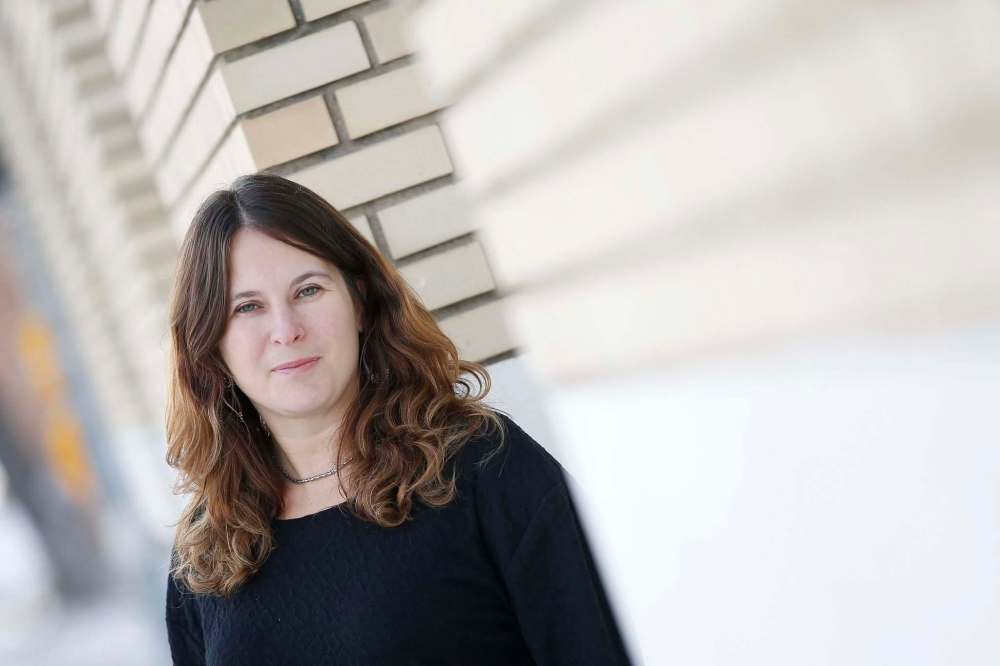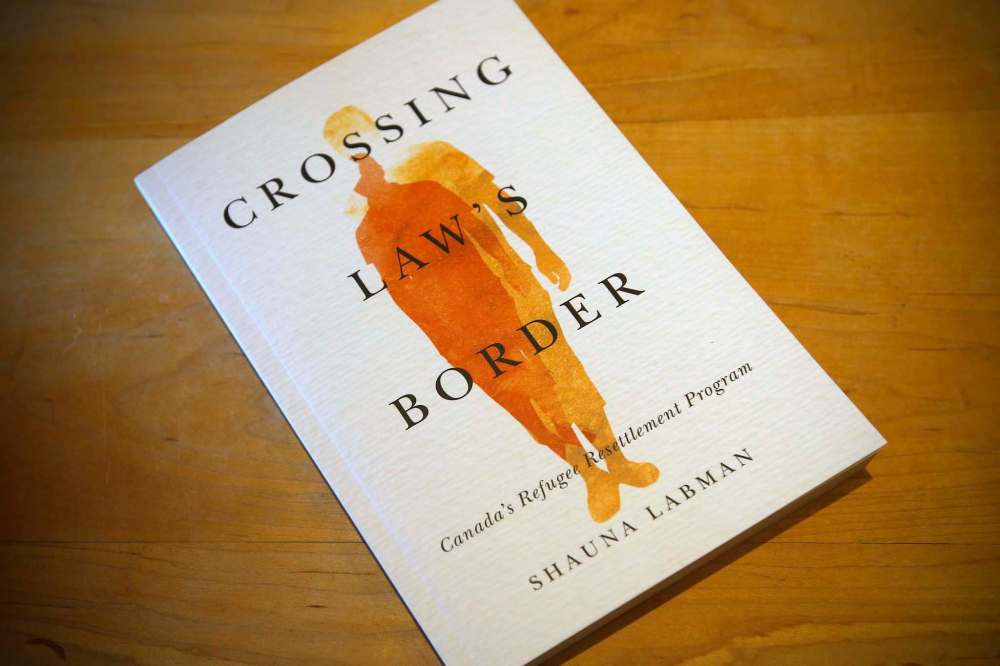Rules shape refugee experiences
Canada's history of 'humanitarian hesitation' considered in new book
Advertisement
Read this article for free:
or
Already have an account? Log in here »
To continue reading, please subscribe:
Monthly Digital Subscription
$1 per week for 24 weeks*
- Enjoy unlimited reading on winnipegfreepress.com
- Read the E-Edition, our digital replica newspaper
- Access News Break, our award-winning app
- Play interactive puzzles
*Billed as $4.00 plus GST every four weeks. After 24 weeks, price increases to the regular rate of $19.95 plus GST every four weeks. Offer available to new and qualified returning subscribers only. Cancel any time.
Monthly Digital Subscription
$4.99/week*
- Enjoy unlimited reading on winnipegfreepress.com
- Read the E-Edition, our digital replica newspaper
- Access News Break, our award-winning app
- Play interactive puzzles
*Billed as $19.95 plus GST every four weeks. Cancel any time.
To continue reading, please subscribe:
Add Free Press access to your Brandon Sun subscription for only an additional
$1 for the first 4 weeks*
*Your next subscription payment will increase by $1.00 and you will be charged $16.99 plus GST for four weeks. After four weeks, your payment will increase to $23.99 plus GST every four weeks.
Read unlimited articles for free today:
or
Already have an account? Log in here »
Hey there, time traveller!
This article was published 06/01/2020 (2218 days ago), so information in it may no longer be current.
As many countries close their borders to the globe’s largest refugee crisis since the Second World War, a Winnipeg legal expert on refugee resettlement has written the book on the subject and Canada’s experience as a global leader.
Crossing Law’s Border: Canada’s Refugee Resettlement Program by Shauna Labman shows the role that law plays in resettlement programs and what can help or hinder refugees being able to call a new country home.
Her book, which will be launched later this month, is an in-depth look at how national and international law and policies shaped Canada’s resettlement programs.

Labman, an associate professor of human rights at the University of Winnipeg’s Global College, taught immigration and refugee law at the University of Manitoba’s Robson Hall for several years and has an academic and personal connection to the issue.
At the U of M, she helped set up a program for law students to assist in-country asylum seekers prepare their refugee claims at Manitoba Interfaith Immigration Council’s Welcome Place. Her family is part of a group that sponsored a refugee family that was selected for resettlement by Canadian immigration officials.
But it was Labman’s first job after being called to the bar in Ontario that pulled her toward refugee resettlement. She was sent to India by the United Nations High Commissioner for Refugees to interview asylum seekers who arrived in that country to see if they were eligible for refugee resettlement in another country. They weren’t allowed permanent resident status in India because it wasn’t a signatory to the UN Refugee Convention, as was Canada and many other countries.
“I saw how ad hoc resettlement was,” she said. Labman returned to Canada from India and decided to do a master’s degree in refugee resettlement. Her master’s thesis titled “The Invisibles” was about refugees who remained unsettled without a country to call home or a “durable solution.”
Now, she’s written a book about how the law has affected refugee resettlement and asylum policies in Canada, including the arrival of the Vietnamese boat people in the 1970s and the resettling of Syrian refugees in recent years.
There’s been much written about refugee law but very little about legislation, government policy and increasingly complex rules for refugee resettlement, Labman said.
“The problem is the information is presented in really siloed containers,” Labman said Sunday. There’s not a lot of government information about the resettlement of privately sponsored refugees versus government-assisted refugees or asylum seekers, she said.
Canada, her book says, has hung onto an informal resettlement program that’s allowed it to maintain “complete and selective control over those it chose to admit and protect.”

The country that prides itself on welcoming refugees has a history of “humanitarian hesitation,” said Labman.
Canada was part of the UN committee that drafted the 1951 Refugee Convention but didn’t sign onto it until 1969 — long after most western countries. It obliges countries not to send back refugees who’ve arrived in their territories. That includes asylum seekers who walk across the border or sail into a Canadian port, who can verify their claim for refugee protection.
“We have to remember we have a legal obligation to refugees,” Labman said.
Her book launch is set for Jan. 16 at 7 p.m. at McNally Robinson Booksellers.
carol.sanders@freepress.mb.ca

Carol Sanders
Legislature reporter
Carol Sanders is a reporter at the Free Press legislature bureau. The former general assignment reporter and copy editor joined the paper in 1997. Read more about Carol.
Every piece of reporting Carol produces is reviewed by an editing team before it is posted online or published in print — part of the Free Press‘s tradition, since 1872, of producing reliable independent journalism. Read more about Free Press’s history and mandate, and learn how our newsroom operates.
Our newsroom depends on a growing audience of readers to power our journalism. If you are not a paid reader, please consider becoming a subscriber.
Our newsroom depends on its audience of readers to power our journalism. Thank you for your support.


